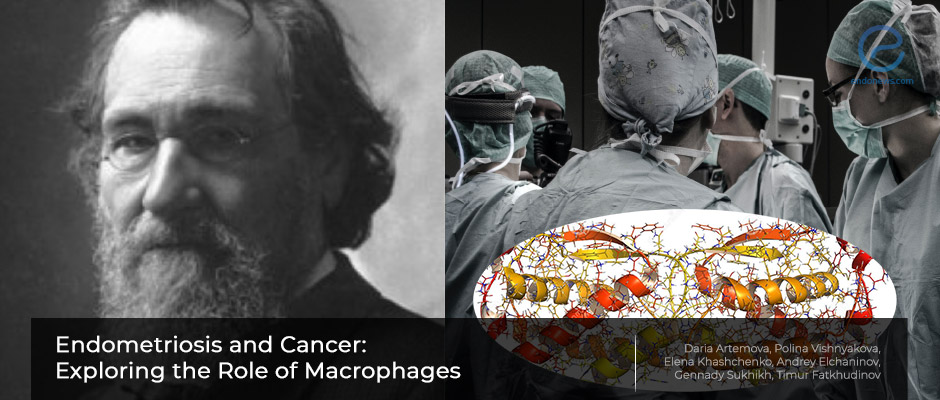A hot research topic: macrophage reprogramming for endometriosis treatment
Aug 2, 2021
Macrophage reprogramming as a theraupetic adjunct for endometriosis : a dream that could come true?
Key Points
Highlights:
- Macrophages are immune system elements with a major role in homeostasis, dispersed throughout the body and can either support or counteract inflammation, depending on the signals received.
- The involvement of macrophages in the endometriotic environment have been revealed in many publications.
- Therapeutic macrophage reprogramming that has been proposed for oncologic therapies is under consideration for endometriosis management.
What’s done here:
- This is a comprehensive review focusing on comparative analysis of macrophages in endometriosis and neoplasia.
- Reports on the experimental macrophage modulation in preclinical models are emphasized.
Key results
- Lowering the anti-inflammatory activation of macrophages along with a decrease in locally increased estrogenic status could be an ideal therapeutic approach.
- This could be considered independently or as an adjunct to hormonal therapies in use, for overcoming progesterone resistance and altering steroidogenesis in ectopic endometria.
- Furthermore, this therapy could increase the effectiveness of surgery with the option of administering polarized macrophages to the endometriotic foci.
Limitation of the proposed therapeutic hypothesis
- In spite of the developments in controlled polarization of endometriosis-associated macrophages in laboratory animals, there is limited evidence on the specific role of macrophages in endometriosis.
Lay Summary
Daria Artemova and colleagues from several research institutes of the Russian Federation have published their review on the cellular aspects of endometriosis related to macrophages, particularly emphasizing promising therapeutic options for the future in "International Journal of Molecular Sciences".
Macrophages have important roles in natural immunity and are dispersed throughout the body. These cellular components of the “innate immunity” may either support or counteract inflammation, depending on the signals received.
Neoplasia and endometriosis have much in common, especially cellular viability in hypoxia, their invasiveness, and ability in starting remodeling, neo-vascularization, and infiltration of tissues. Macrophage reprogramming as a therapeutic adjunct has been proposed for oncologic therapies. Similarities between endometriosis and malignant neoplasia also suggest a potential for such approaches in endometriosis management also.
The role of macrophages in endometriotic foci are revealed in many studies. There are several strategies proposed to treat endometriosis which include activation (polarization) of macrophages towards phenotypes with anti-endometriotic activity, complete elimination of macrophages, or prevention of their migration to the foci.
Considering the features of endometriosis pathogenesis and progression, the most promising therapeutic strategy is the combined decrease in the anti-inflammatory activation of macrophages and local hyperestrogenic milieu. This therapy could be applied in an independent form or as an adjunct to hormonal therapies in use overcoming progesterone resistance and altering steroidogenesis in ectopic endometriotic foci. This therapeutic application would be able to increase the effectiveness of surgery also with the possible option of administering polarized macrophages to the pathologic foci in particular.
However, there is limited evidence on the specific role of macrophages in endometriosis and the main applicable issue is still around developments in controlled polarization of endometriosis-associated macrophages in the laboratory.
Research Source: https://pubmed.ncbi.nlm.nih.gov/34068967/
endometriosis macrophages macrophage reprogramming cancer polarization therapy hypoxia progesterone resistance estrogen

